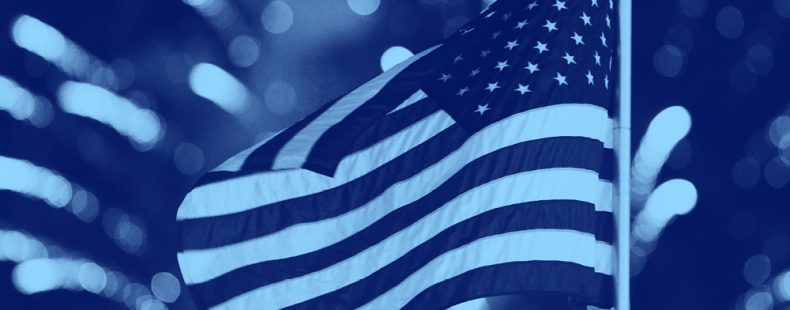Do you know all the words to “The Star-Spangled Banner”? Many people have difficulty memorizing the lyrics of the first verse of the US anthem, which is commonly performed at sports events and other public gatherings. But did you know that there are three additional verses that we almost never hear? As if one verse weren’t hard enough to learn …
Why is the “Star-Spangled Banner” the US national anthem?
In 1814, the poet and lyricist Francis Scott Key penned the lyrics to “The Star-Spangled Banner,” originally known as “Defense of Fort M’Henry.” During the War of 1812, Key witnessed the attacks on Baltimore and wrote the words based on his experiences this night. These lyrics were printed in local newspapers and set to the tune of an existing song called “Anacreon in Heaven,” and then officially arranged by John Philip Sousa. Key’s famous lyrics entered the world as a broadside ballad, or a song written on a topical subject, and printed for wide distribution.
WATCH: Can You Correct These Grammatically Incorrect Song Lyrics?
More than a century later, in 1916, President Woodrow Wilson signed an executive order designating “The Star-Spangled Banner” as the national anthem, and in 1931, the US Congress confirmed the decision. The tune has kicked off ceremonies of national importance and athletic events ever since.
What are the forgotten verses of the “Star-Spangled Banner”?
While the first verse of “The Star-Spangled Banner” is widely known by the American public, the last three verses are generally omitted in performances. Here are all the four verses, as they were written more than 200 years ago by Key:
O say can you see, by the dawn’s early light,
What so proudly we hail’d at the twilight’s last gleaming,
Whose broad stripes and bright stars through the perilous fight
O’er the ramparts we watch’d were so gallantly streaming?
And the rocket’s red glare, the bombs bursting in air,
Gave proof through the night that our flag was still there,
O say does that star-spangled banner yet wave
O’er the land of the free and the home of the brave?
On the shore dimly seen through the mists of the deep
Where the foe’s haughty host in dread silence reposes,
What is that which the breeze, o’er the towering steep,
As it fitfully blows, half conceals, half discloses?
Now it catches the gleam of the morning’s first beam,
In full glory reflected now shines in the stream,
’Tis the star-spangled banner—O long may it wave
O’er the land of the free and the home of the brave!
And where is that band who so vauntingly swore,
That the havoc of war and the battle’s confusion
A home and a Country should leave us no more?
Their blood has wash’d out their foul footstep’s pollution.
No refuge could save the hireling and slave
From the terror of flight or the gloom of the grave,
And the star-spangled banner in triumph doth wave
O’er the land of the free and the home of the brave.
O thus be it ever when freemen shall stand
Between their lov’d home and the war’s desolation!
Blest with vict’ry and peace may the heav’n rescued land
Praise the power that hath made and preserv’d us a nation!
Then conquer we must, when our cause it is just,
And this be our motto–“In God is our trust,”
And the star-spangled banner in triumph shall wave
O’er the land of the free and the home of the brave.
What other poems are set to music?
It turns out many of our greatest poets inspired musicians and composers. Natalie Merchant set Emily Dickinson’s poem “Because I could not stop for Death” to music in 2005.
The Shakespeare-penned song, “Under the Greenwood Tree,” which is performed by Amiens and Jacque in the play As You Like It, was covered by Donovan on his album A Gift from a Flower to a Garden in 1967.
But the poet with a particularly deep musical legacy is Edgar Allen Poe. Poe’s work has been inspiring composers and musicians across a broad range of genres for over a century. In 2003, Lou Reed released an album called The Raven, featuring spoken-word interpretations of Poe’s writing from actors like Steve Buscemi and Willem Dafoe. Other references to Poe’s work appear in songs from Bob Dylan and the White Stripes.












